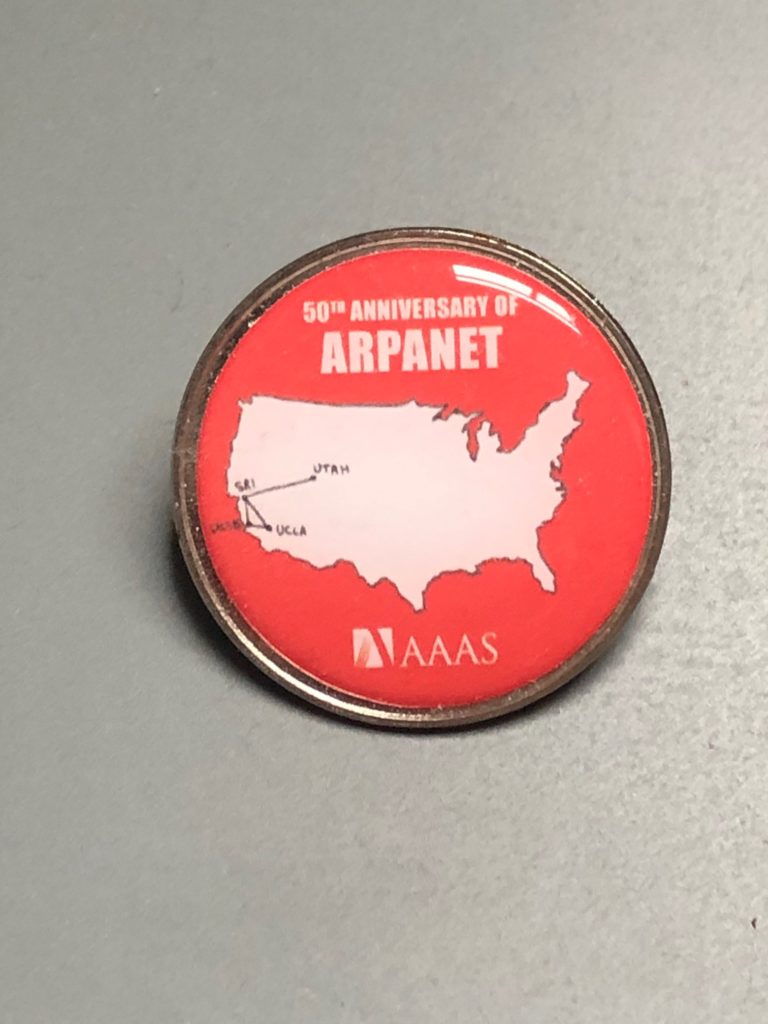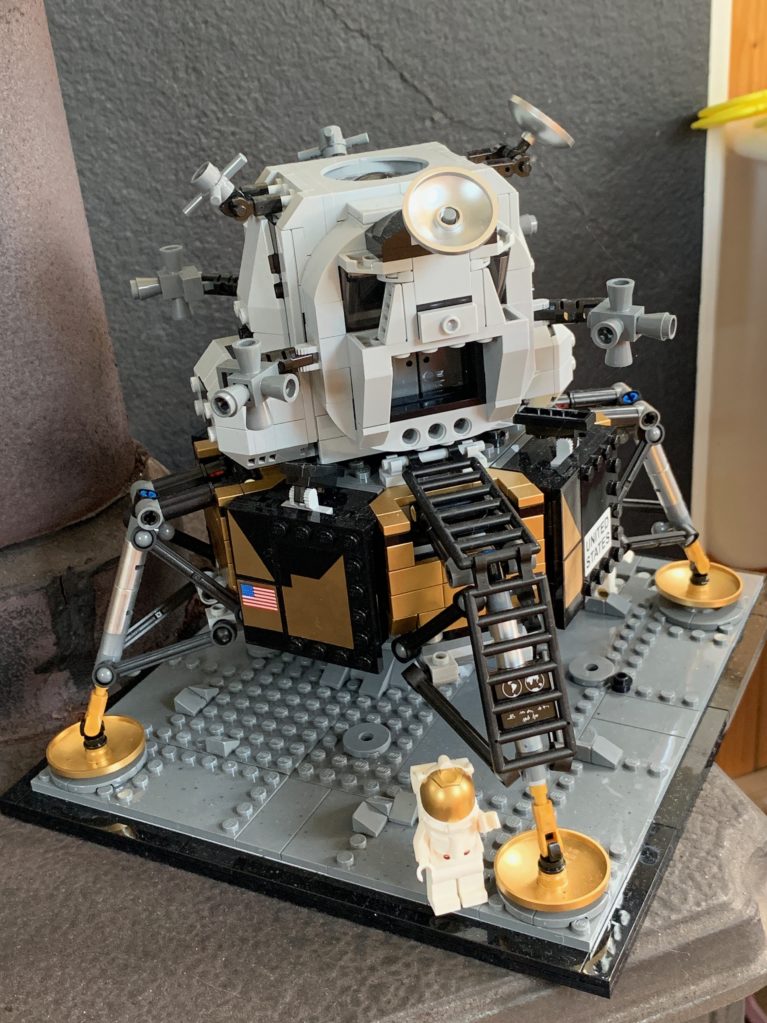Apollo 11 is more than nostalgia for me, it’s a way to think about tomorrow’s challenges
If you’re interested in the fiftieth anniversary of the Apollo 11 lunar mission then you’re probably already completely entranced by the BBC World Service podcast 13 Minutes to the Moon, in which Kevin Fong dissects the landing and puts every aspect into a broader technical, political, social and profoundly human context.
It’s an outstanding series in every respect, combining archive footage from the mission and old and new interviews with many of those involved, with an intelligent script and beautiful sound design, and I can’t recommend it enough. Produced by Andrew Luck-Baker and with Rami Tzabar as Executive Producer, it’s brilliantly made and one of the best audio documentaries you can find online.
If you work in computing or engineering then it’s worth it just for the insight into the complexities of the hardware and software involved, as it doesn’t hold back from going into technical details about the engineering and coding challenges, giving you all the background you need to be fully present as the lunar excursion module separates from the command module and begins to descend. Knowing how it ends doesn’t diminish the power of the story, or the emotional investment you make as a listener.
It’s worth listening to every episode – each is around 45 minutes – but if you don’t have time the whole thing then I urge you to listen to Episodes 8 and 9, which take you from the separation of the two spacecraft in lunar orbit – the Command Module and the Lunar Excursion Module – to the final ’stay’ decision after landing. And that detail is what makes it so good – it doesn’t stop at the moment of touchdown, but covers the three points in the next two hours when Mission Control had to decide to stay or go. They stay.
Episode 8, ‘We’re go for powered descent’, describes what happened as the Eagle lander dropped out of orbit, and the many, many things that went wrong and threatened to force the mission either to be abandoned or to end in disaster. Lost communication, overshooting the landing site, and computers that were simply overloaded with calculations all contribute to a sense of a mission on the verge of failure managing, somehow, to pull together.
The real lesson in the episode is about how three elements – the people, the hardware, and the software – in two places – on earth and in orbit around the moon – came together to create a collaborative system that could see the mission through, and how the emergent properties of that system were able to allow for confident decision making through uncertainty.
There is a very strong message about how preparation – ifor example the decision to categorise every possible error condition the guidance computer could throw up so that decisions as to whether to abort could be made quickly -made a real difference on the day. And there’s an even stronger message about how leadership works in such circumstances, keeping each component separate yet integrated, allowing each element to perform properly to make its contribution to the whole. When you are assessing how much fuel the lander has to work with, you don’t have to worry about what programme alarm 1202 means – and indeed, you mustn’t.
Overall it’s a powerful testimony to the ways we work as humans when technology is there to assist and support us – something we should remember as we begin to design systems that will require us to adapt to their non-human modes of operation. I found myself thinking about the distributed decision matrix that makes up my life, thanks in large part to the Internet, and the ways I lay off cognitive load onto the many machines I have easy access to – from a pocket calculator to Google Translate via CityMapper and Telegram.
And Episode 9, ‘Tranquility Base’ (the clue is in the title) takes us to the lunar surface, and it brought me to tears on my cycle ride into Cambridge station this morning. It was beautifully paced, taking thirty-five minutes to explain and expand what happened in five and a bit minutes of real time back in July 1969, and built up enormous tension even though we all know how it ended.
My tears were in part because of my admiration and respect for everyone who made the mission possible, and for the way the landing team in Mission Control worked together- and of course, inflected by the awareness that teams like that are very rare indeed and we should cherish them if we’re lucky enough to be part of one. Perhaps there was also a little envy that I wasn’t there: I had the posters on my wall as an eight year old, followed Apollos 8, 9 and 10 with careful attention and was up late on July 20/21 to see it all happen on television and go out to look at the moon from my garden in Corby, but part of me will always regret not having been part of it all in some way.
But there was something else, more directly related to the fact that my eldest is currently cycling across France and they had to check into a hotel for five days because it was too hot to go out and their tent was beginning to melt. Something related to extreme weather and carbon dioxide levels of 410ppm (https://www.co2.earth/daily-co2) and rapid species loss, and the way that the industrial civilisation that made Apollo possible fifty years ago has changed the planet in ways that will make it a lot harder for us all to thrive over the next fifty years.
I’m enjoying 13 Minutes enormously both as nostalgia for the days when the world seemed a lot simpler to me and as a testament to what we can do when we work together and commit to a goal. But I’m also saddened by it, because I know it shows a small sliver of what was at the time a fractured, violent world where the roots of much of what is wrong today were already penetrating the soil of politics, and I know that the rationale for the mission was nationalist rivalry and political advantage, even if the result transcended that for a short period of time.

Arpanet 50 Badge
Like the Internet, whose roots in the ARPANET also go back to 1969, the technologies that drove us to the moon have had an enormous impact for good and ill.
So I’ll enjoy the story and the testimony, accept it for what it meant to me then, and use it as a means of reflecting on the world today and the challenges we face. What Apollo shows is not that engineering can solve our problems but that people can, and that we need people as good as those who drove the mission forward to be working on the problems that face us today.
The challenge of climate change is real, but it isn’t glamorous and doesn’t involve focused effort towards a single goal. If we succeed there will be no moment of triumph – but young people will get to live lives where they can be fulfilled. And it is far more complex even than Apollo, with its four hundred thousand people, as it involves resetting the world’s financial systems to reduce poverty, want, and suffering and moving away from a culture based on manufacture and waste and oil and coal to one that offers more balance with the ecosystem.
The mission to keep the world habitable by humans doesn’t involve hurling people across space or bringing them safely home, and there probably won’t be elegiac podcasts about it at the turm of the next century, but we need to take it seriously.
